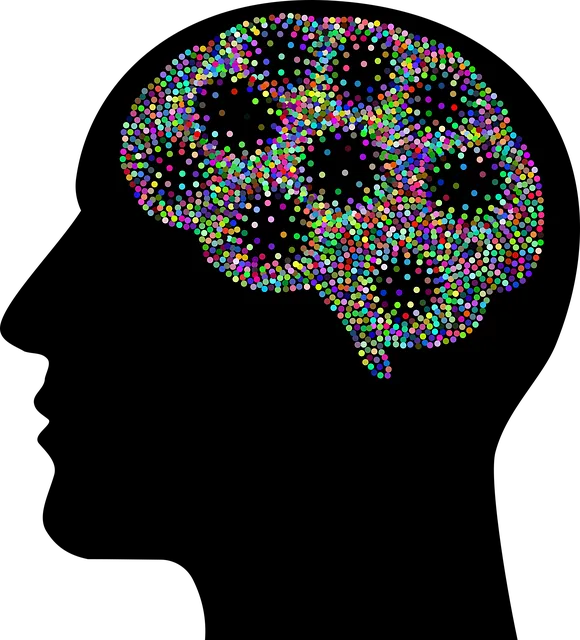Kaiser Permanente behavioral health services in Littleton are transforming mental health support through comprehensive programs that address social skills, a critical but often overlooked aspect of holistic healthcare. Their Social Skills Training (SST) equips individuals with mental health conditions to rebuild support systems and manage relationships, as highlighted by positive reviews. Innovative initiatives like stigma reduction efforts and the Mental Wellness Podcast Series have created an inclusive environment where people feel empowered to discuss mental health openly. Integrating SST into care improves patient outcomes, enhances emotional intelligence, and promotes a sense of belonging, ultimately fostering better mental well-being for individuals with mental health conditions.
Social skills training is a powerful tool in improving mental health outcomes, especially for individuals navigating conditions like anxiety, depression, or social phobias. This article delves into the vital connection between social interactions and mental well-being, highlighting how structured programs can significantly enhance quality of life. We explore Kaiser Permanente behavioral health services’ role in fostering these skills, focusing on their innovative approaches and real-world impact, as seen in success stories from Littleton. Learn how integrating social skills training into comprehensive care plans can revolutionize mental health support.
- Understanding the Link Between Social Skills and Mental Health
- The Role of Kaiser Permanente Behavioral Health Services in Training
- Effective Strategies for Developing Social Skills in Clinical Settings
- Real-World Application: Success Stories from Littleton
- Integrating Social Skills Training into Comprehensive Mental Health Care
Understanding the Link Between Social Skills and Mental Health

The connection between social skills and mental health is a crucial aspect often overlooked in holistic healthcare. At Kaiser Permanente behavioral health services in Littleton, we recognize that strong social connections are integral to overall well-being. Many mental health conditions can isolate individuals, leading to a decline in social interactions and support networks. This disconnection can exacerbate symptoms and hinder recovery.
Social Skills Training (SST) is a game-changer in addressing this issue. SST focuses on teaching individuals coping skills development and resilience building techniques to navigate social situations with confidence. By improving communication, empathy, and conflict resolution abilities, our clients at Kaiser Permanente are equipped to rebuild their support systems and foster meaningful relationships, which are vital for managing their mental health effectively.
The Role of Kaiser Permanente Behavioral Health Services in Training

Kaiser Permanente Behavioral Health Services, based in Littleton, plays a pivotal role in transforming mental health support through comprehensive training programs. Their expertise extends to various aspects of behavioral health, offering solutions tailored to the unique challenges faced by individuals with mental illness. With a focus on community engagement and education, Kaiser Permanente reviews highlight successful initiatives aimed at stigma reduction efforts, fostering environments that promote positive thinking and encourage open conversations about mental health.
The organization’s training programs are designed to equip professionals and caregivers with crisis intervention guidance, ensuring they can provide effective support during critical moments. Through these initiatives, Kaiser Permanente Behavioral Health Services contributes significantly to building a more compassionate and informed society, where individuals with mental health conditions receive the understanding and assistance they deserve.
Effective Strategies for Developing Social Skills in Clinical Settings

In clinical settings, social skills training for mental health conditions involves tailored strategies that address specific challenges faced by individuals. At Kaiser Permanente behavioral health services in Littleton, professionals employ evidence-based techniques to enhance communication, assertiveness, and empathy—key components of emotional intelligence (EI). These sessions often incorporate role-playing scenarios, group discussions, and skill-building exercises designed to foster mental wellness and mood management, as highlighted in numerous reviews.
Effective programs focus on teaching practical coping mechanisms that help individuals navigate social interactions with confidence. By integrating emotional awareness and regulation techniques, patients develop a deeper understanding of their own emotions and those of others, leading to more positive relationships. Such intensive training not only improves social functioning but also contributes to overall mental health recovery, as evidenced by the success stories from Kaiser Permanente Littleton.
Real-World Application: Success Stories from Littleton

In the real-world application of social skills training, Littleton serves as a shining example of success within Kaiser Permanente behavioral health services reviews. The community has witnessed profound improvements in mental wellness through innovative programs focused on stigma reduction efforts and self-esteem improvement. These initiatives have not only enhanced the lives of individuals struggling with mental health conditions but also fostered a more inclusive environment where people feel empowered to seek help without fear of judgment.
The Mental Illness Stigma Reduction Efforts in Littleton have been particularly impactful, encouraging open conversations and promoting understanding among residents. This has led to increased support networks for those dealing with mental illness, contributing to improved outcomes and higher rates of recovery. Moreover, the production of the Mental Wellness Podcast Series has played a pivotal role in educating the community about various aspects of mental health, including the importance of social skills training and its positive effects on overall well-being.
Integrating Social Skills Training into Comprehensive Mental Health Care

Integrating Social Skills Training into comprehensive mental health care is a holistic approach that addresses a critical aspect of recovery often overlooked in traditional treatments. Many mental health conditions significantly impact an individual’s ability to interact and connect with others, leading to social isolation and exacerbating symptoms. Kaiser Permanente behavioral health services reviews highlight the success of implementing social skills training programs, demonstrating their effectiveness in enhancing patient outcomes.
This type of training equips individuals with essential communication strategies and stress management techniques, fostering a sense of belonging and improving overall mental well-being. By integrating these programs into the broader framework of mental health policy analysis and advocacy, healthcare providers can ensure that patients receive comprehensive support tailored to their unique needs. Effective social skills training not only empowers individuals to navigate interpersonal relationships more effectively but also strengthens community connections, ultimately promoting a healthier and more supportive environment for those managing mental health conditions.
Social skills training is a powerful tool within comprehensive mental health care, as evidenced by the success stories from Littleton and the expertise of Kaiser Permanente Behavioral Health Services. By integrating these strategies into clinical settings, professionals can significantly enhance the lives of individuals with mental health conditions, fostering better social connections and overall well-being. This approach not only complements traditional therapy but also empowers folks to navigate social interactions with confidence, leading to more fulfilling lives. As recognized by Kaiser Permanente behavioral health services reviews, this holistic method is a game-changer in mental health support.






